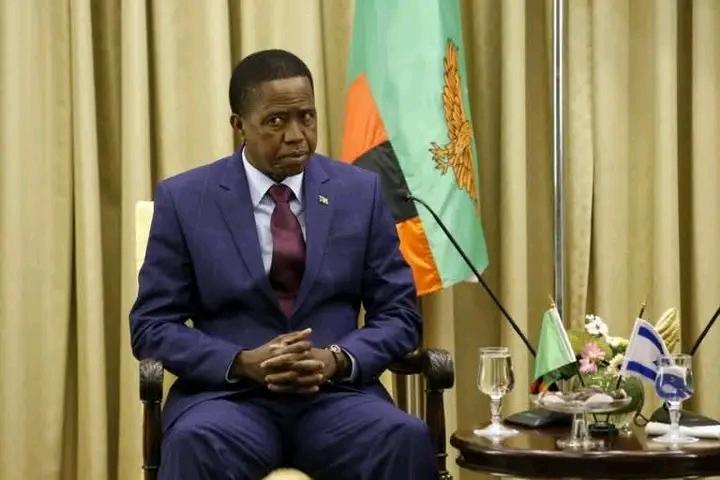Africa-Press – Zambia. As a published author, I just cannot resist to put ink to paper when historical events unfold, the urge to merge always takes the worst out of me.
Call it occupational hazard if you like.
So here I was this morning glued to my TV screen watching the story of our sixth President Edgar Lungu unfold in living colour, my humble take below as a documentalist.
It’s been sixty days since the sixth President of Zambia Dr. Edgar Chagwa Lungu took his final breath in a Johannesburg hospital.
And yet, the man who once commanded battalions of infrastructure and political loyalty lies in limbo, unburied, unmourned, and suspended between two nations and two visions of dignity.
On a chilly Pretoria morning, three judges—two black, one white—sat in solemn silence as Zambia’s government and Lungu’s grieving family squared off in court.
The hearing lasted barely an hour. The ruling? “Maybe tomorrow, but no later than Friday,” said the bench. And so, the wait continues. Tuesday or Friday.
In the hard wooden pews of the North Gauteng High Court sat a weary former First Lady Esther Lungu, draped in black, her face a portrait of quiet devastation.
Around her, children and top former government figures like hon. Given Lubinda sat in mournful stillness. No slogans.
No speeches. Just the heavy air of a family torn between love and law.
The elephant in the courtroom? The family doesn’t oppose a burial in Zambia. They want something simpler, more personal. The family wants ECL buried in South Africa.
The government, led by Attorney General Mulilo Kabesha, insists on protocol. The Former Presidents’ Benefits Act demands it, they say but others say its ‘mere guidelines’.
But as constitutional lawyer John Sangwa rightly put it, “Courtesy is not law.”
And therein lies the tragedy. Zambia has no binding legislation on presidential funerals.
No National Leaders’ Funerals Act like Tanzania’s, which clearly outlines burial sites, roles, and budgets.
In Dar es Salaam, there’s no guesswork. In Lusaka, there’s only improvisation.
This isn’t the first time Africa has wrestled with the burial of its giants.
Take Kwame Nkrumah. When the father of Pan-Africanism who died in in, Guinea where he lived in exile, family refused to release his body.
Ghana’s military regime had to negotiate his return. He was buried in his hometown of Nkroful, only to be reburied years later in Accra’s grand mausoleum.
His final resting place became a battleground of ideology, Pan-Africanist, nationalist, or socialist?
Or consider Mobutu Sese Seko. The once-mighty ruler of Zaire died in Morocco in 1997. His body was never repatriated. Kinshasa refused.
His grave lies in Rabat, a lonely monument to a man who once renamed rivers and rewrote history.
And now, Edgar Lungu, builder of bridges, commander-in-chief, father, husband—waits in a South African funeral home. Not because of logistics, but because of politics.
This is more than a burial dispute. It’s a mirror held up to our institutions. It asks: Do we honor our leaders with laws or with guesswork or love?
Do we bury them with dignity or with delay, do we respect their family wishes, lets enact laws to become like Tanzania?
African governments must tread carefully in my humble view. This is not the time for political point-scoring. It’s a time for compassion, clarity, and closure.
The family’s grief is real. The nation’s pride is valid. But without a legal framework, we risk turning every presidential death into a courtroom drama. Look at KK!
Let me end with a metaphor: A nation without a burial law is like a train without tracks. It may have the engine, the passengers, even the destination, but it will never arrive.
So here’s my plea: Let us bury H.E Edgar Lungu with the dignity he deserves. Let us pass the laws that prevent this sorrow from repeating itself. And let us remember that even in death, leadership matters.
Because a country that cannot bury its heroes cannot build Skyscrapers or AI.
Love wins over conflict.
—–
Amb. Anthony Mukwita is the author of ‘Against all Odds, President Edgar Lungu’s Rough Journey to State House.’
For More News And Analysis About Zambia Follow Africa-Press







